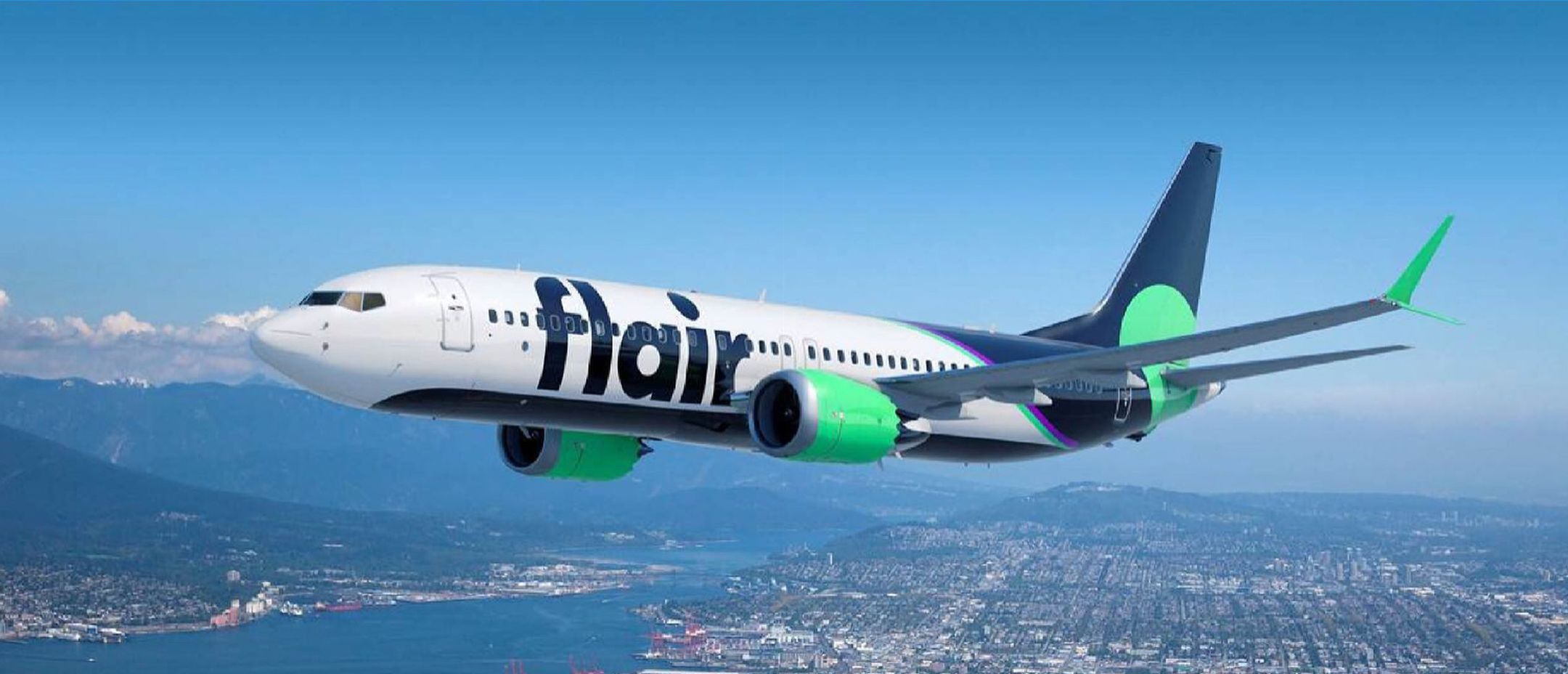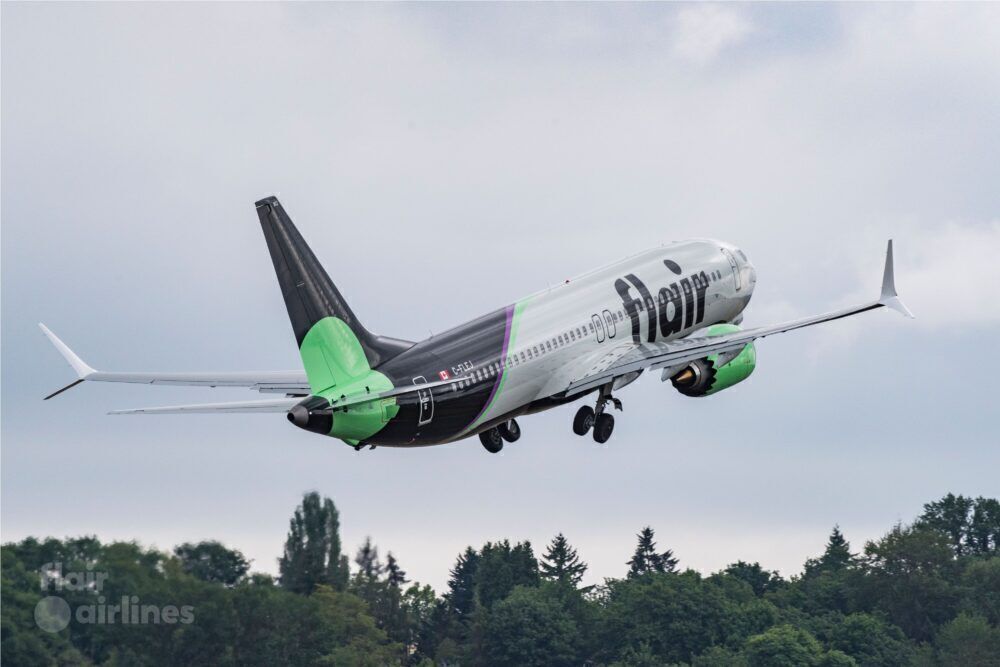Low-cost carrier, Flair Airlines, may be in violation of a law that requires all Canadian-operated airlines to be majority controlled by Canadians.
Following the formal announcement of its investigation last month, the CTA has determined in its preliminary ruling that the carrier “may not be controlled in fact by Canadians and may, therefore, not be ‘Canadian,’ as defined in the Canada Transportation Act.” The airline faces the loss of its operator’s certificate if finalized following review.
Foreign control?
Canada requires all Canadian carriers operating domestic and international routes to be at least 51% owned by Canadians, with no single foreign entity owning over 25%. Foreign investors are barred from exerting control in fact over an airline, which CTA defines as,
“The power, whether exercised or not, to control the strategic decision-making activities of an enterprise and to manage and run its day-to-day operations. Those who may have the power to influence a company’s decisions can include minority owners, designated representatives, financial institutions, employees and others.”
Concerns were raised over the airline’s structure and investors. The preliminary review noted that Miami-based 777 Partners owns a 25% stake in the company and occupies three of the five seats on the airline’s board. Additionally, the investment firm had planned to lease the carrier 13 Boeing 737 MAX aircraft.
Flair Airlines Chief Executive Officer said in a statement,
“Flair Airlines is a Canadian airline and is controlled by Canadians both in law and in fact. Flair Airlines, at all times, operates its business in compliance with the laws and regulations governing air transportation in Canada. Flair Airlines will fully cooperate with the Canadian Transportation Agency review and will respond to the Canadian Transportation Agency in a timely manner.”
Exemptions made?
An investigation by The Globe and Mail uncovered that the airline approached Transport Canada on April 4 for an 18-month exemption to the law to revise its governance and financing structure to ensure it is meeting Canadian requirements.
Flair Airlines has warned that the airlines’ closure would come at the loss of 1,000 jobs and limit competition on underserved routes. Transport Canada has given Flair Airlines 60 days to respond to its concerns, however, the airline has said it requires more time to address the CTA's objections.
Vice-president of Government Relations for WestJet, Andrew Gibbons, has noted the carrier supports the CTAs investigation, urging Transport Canada to reject the exemption request. Gibbons claims that Flair Airlines was given an unfair advantage by using its foreign investment for fleet advantage, adding,
“With this exemption request formally submitted, it is a confirmation that Flair is knowingly violating the longstanding regulations around foreign ownership and has no plan under way to mitigate this situation. It is WestJet’s expectation that Transport Canada will reject the 18-month exemption request and uphold a final CTA ruling that confirms Flair is in violation of Canadian aviation policy.”
Flair Airlines did not receive a bailout loan under the Canadian government’s program to aid large employers during the pandemic; however, it did receive over $11 million in grants between 2021 and 2022, according to government data.
What do you think of the CTA's preliminary ruling? Let us know in the comments.
Sources: The Globe and Mail, ch-aviation



